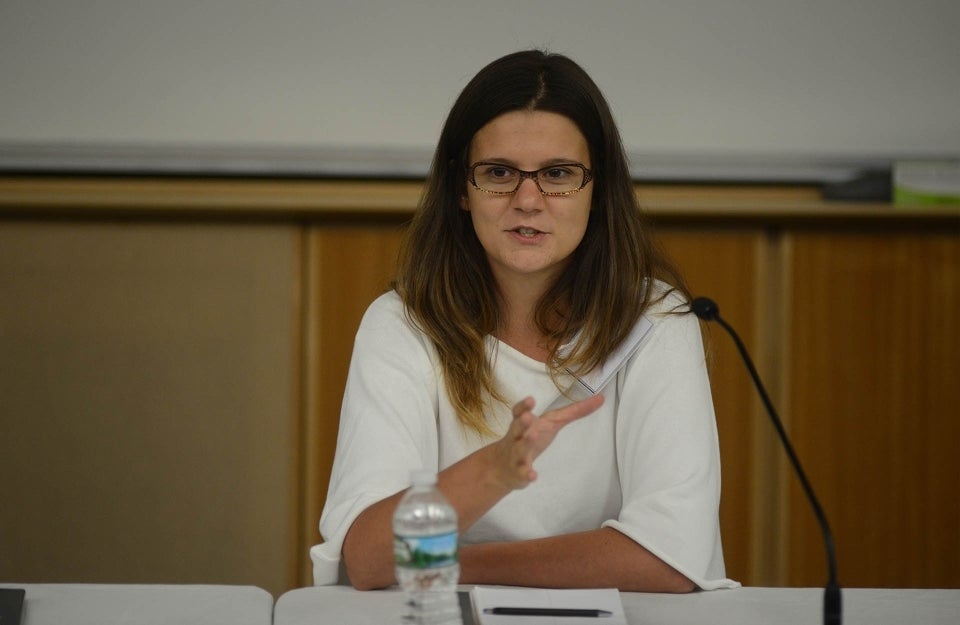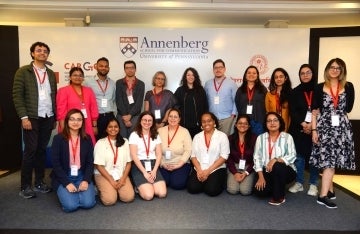Sandra Ristovska Receives Outstanding Dissertation Award from National Communication Association
The award honors Ristovska's doctoral dissertation, "Human Rights Through the Lens."

The National Communication Association (NCA) Visual Communication Division’s award committee has selected recent Annenberg graduate and current George Gerbner Postdoctoral Fellow Sandra Ristovska’s dissertation as its outstanding dissertation of the year. The reviewers' unanimous decision lauded the project for its innovation and theoretical sophistication. Ristovska will be recognized for her achievement during the NCA conference next week at the division’s business meeting on Friday Nov. 11 from 9:30-10:45am at the Marriott Downtown in room 407.
Ristovska’s dissertation committee included Professors Barbie Zelizer (chair), John L. Jackson Jr., Marwan M. Kraidy, and Monroe Price.
Dissertation Title: Human Rights Through the Lens: A Study of the Institutionalization and Professionalization of Video Activism
Abstract: This dissertation examines the institutional environments in which human rights video activism takes shape. Looking at how three leading human rights groups produce and use video — Amnesty International, Human Rights Watch and WITNESS — it tackles how institutional environments, as we know them, are changing through their adoption of video, and what this shift suggests about the status of visual knowledge and human rights activism today.
The dissertation argues that the visual knowledge provided by video and long claimed by activists has now attained legitimacy across the institutions central for human rights — journalism, the law and advocacy. These institutions are characterized by different professional logics and dynamics, but each of them has built its authority upon the power of words, sidelining the value of images. In the current moment, though, journalism, the law and advocacy are all turning to video as a way of offsetting a varied set of cultural, social, financial and technological challenges.
This turn to video is therefore providing an institutional locus that supports the emerging professionalization of video activism by human rights groups. Amnesty International, Human Rights Watch and WITNESS are developing tactics and strategies for video that play to the modalities of journalism, the law and advocacy as a way of better tapping into the channels through which human rights receive fuller recognition and restitution. Through video production, standards and training, they move video activism away from its long-held status as an occupational craft into a proxy profession that puts human rights videos into institutional service. As video’s power as a human rights tool rests upon its ability to serve as a platform for voice, this dissertation also analyzes the effects of the proxy profession on the voice of video activism.



